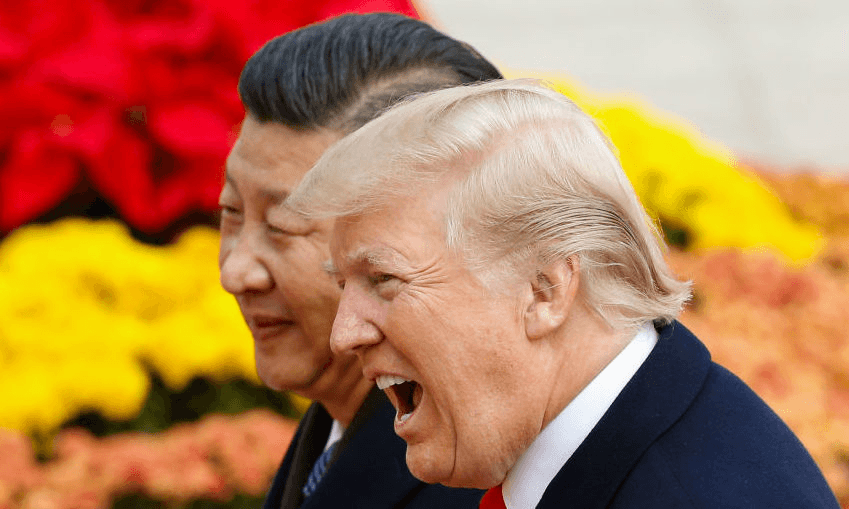Why are we still looking to America first when it comes to our decisions on which countries to engage with, asks former MP Keith Locke.
Britain’s decision to resist American pressure and let Huawei into its 5G network is embarrassing for New Zealand.
Earlier our government had fallen into line with Washington and Canberra and blocked Spark from using the Chinese firm in its 5G rollout. The minister in charge of our electronic spy agency, Andrew Little, said the ban had nothing to do with him. The Government Communications Security Bureau (GCSB) had, on its own, determined that Huawei’s involvement endangered “national security” and no further explanation was required.
To my mind this is absurd. China is our biggest trading partner, and Huawei its foremost telecommunications company. Accepting or rebuffing Huawei is ultimately a political decision, as UK Prime Minister Boris Johnson has shown.
In the light of the British concession, it may be that Spark re-submits an application for Huawei to help with the Radio Access Network (RAN) equipment in the “non-core” part of the 5G network. Participation in the “non-core” features (cellphone towers, etc) is what the British have granted, and Huawei NZ has never asked for more than that. 2 Degrees, which worked closely with Huawei in building its 4G network, may also submit an application.
The main scaremongering has been about the possibility that the Chinese government will use Huawei’s involvement in 5G to spy on us. Of course, China, like all big powers, is heavily into spying.
But the downside of China using Huawei for espionage or sabotage is great. The company says it would be suicidal for them to participate in spying because they would lose business all around the world. A few years ago the American telecom firm, Cisco, lost significant market share after the Edward Snowden documents showed the US National Security Agency (NSA) had been intercepting communications through its routers. Incidentally, the GCSB has allowed Cisco to be part of Spark’s 5G “core”.
If we are worried about people using 5G for nefarious purposes, then we should worry first about the NSA, the biggest and boldest spy agency. Amid all the talk about Huawei being pressured to do the bidding of the Chinese government we should recognise that American telecom companies work closely with the NSA.
In 2015 the New York Times disclosed a partnership whereby the AT&T telecom company forwarded as many as 400 billion internet metadata records a month to the NSA. The Times also reported that “in 2011, AT&T began handing over 1.1 billion domestic cellphone phone calling records a day to the NSA.”
Unfortunately, much of the reporting on Huawei and 5G has failed to note that Donald Trump has a broader agenda, which is to slow the development of China’s high tech companies, particularly Huawei. Over the past year there have been presidential edicts banning US companies from selling electronic goods (both hardware and software) to the Chinese company. This had hit Huawei’s smartphone production hard, because the company is finding it hard to sell phones outside of China without embedded Google’s apps (including Google Maps and Google Play).
However, the Trump administration’s bans may be counterproductive. They have only encouraged Chinese tech firms to speed up their development programs. Huawei might be shut out of the American telecommunications market, but it is prospering in the rest of the world, particularly in China itself.
We shouldn’t be going along with the Trump administration’s efforts to weaken China and divide the world into American and Chinese spheres of influence. We all need to be working together to address common problems, like global warming, or a virus epidemic.
We should also rethink whether we stay in the Five Eyes. It pulls us too much into the American camp and weakens our ability to have an independent foreign policy.

